
Closed
Discovery Grants (individual) program
Last Update: October 27, 2025
Canada
Supports long-term research in natural sciences and engineering
Grant and Funding
At a glance
Funding available
Financing goals
Develop strategic partnerships
Research and experimental development
Conduct research
Eligible Funding
- No Condition
Timeline
- Closing date : November 3, 2025
Eligible candidates
Eligible Industries
- Professional, scientific and technical services
- Educational services
Location
- Canada
Legal structures
- All legal structures
Annual revenue
- All revenue ranges
Organisation size
- All organization sizes
Audience
- Canadians
Overview
The Discovery Grants (individual) program provides long-term operating funding for up to five years to support ongoing research programs in the natural sciences and engineering at Canadian universities. This program aims to foster research excellence and innovation, with eligible activities including original research, training of highly qualified personnel, and participation in collaborative projects; there is no fixed maximum funding amount per grant, as awards are determined based on peer review and applicant category.
Activities funded
- Long-term research programs in the natural sciences and engineering aimed at advancing knowledge in these fields.
- Innovative research initiatives supporting creativity and excellence in scientific or engineering disciplines relevant to NSERC’s mandate.
- Research training environments providing opportunities for highly qualified personnel, such as students and postdoctoral fellows.
- Collaborative research activities within the natural sciences and engineering sector.
Examples of admissible projects:
$ 165,000
Developing AI models for sustainable chemical manufacturing processes
$ 157,000
Exploring climate-resilient crop genetics using CRISPR editing tools
$ 185,000
Investigating waterborne microplastics with advanced spectroscopy techniques
$ 180,000
Advancing remote sensing algorithms for northern permafrost monitoring
$ 170,000
Developing biodegradable smart packaging using biopolymer nanocomposites
$ 210,000
Designing photovoltaic nanomaterials for efficient solar energy harvesting
Eligibility
- The applicant must be an individual researcher affiliated with a Canadian university.
- The proposed research program must fall within the natural sciences and engineering fields, in line with NSERC’s mandate (excluding health, social sciences, and humanities).
- The research program must be conceptually distinct from research funded by the Canadian Institutes of Health Research (CIHR) or the Social Sciences and Humanities Research Council (SSHRC).
- The applicant must meet NSERC’s eligibility requirements for faculty to apply for or hold grant funds.
- The applicant cannot hold both a Discovery Grant and a Discovery Horizons grant at the same time.
Who is eligible?
- Canadian universities (for the benefit of eligible researchers holding faculty positions)
Who is not eligible
- Companies and organizations outside the natural sciences and engineering sectors.
- Businesses whose primary research activities fall under health, social sciences, or humanities sectors.
- Entities seeking funding for projects already supported by the Canadian Institutes of Health Research (CIHR) or the Social Sciences and Humanities Research Council (SSHRC).
Eligible expenses
- Operating expenses essential to the ongoing research program, as allowed by the Tri-agency Guide on Financial Administration.
- Costs supporting research activities in the natural sciences and engineering.
- Participation in collaborative research initiatives within NSERC’s mandate.
Eligible geographic areas
- Canadian universities
Selection criteria
- Scientific or engineering excellence of the researcher, including knowledge, expertise, and impact on the field.
- Merit of the proposal, considering originality, significance, methodology, feasibility, and clarity of objectives.
- Contribution to the training of highly qualified personnel (HQP), focusing on the quality and impact of past and planned training, and consideration of equity, diversity, and inclusion.
How to apply
1
Verify eligibility and mandate
- Review eligibility criteria for faculty and research subject
- Confirm research program aligns with NSERC's natural sciences and engineering mandate
- Consult your research grants office for internal deadlines
2
Prepare application documents
- Prepare and complete the Canadian Common CV (CCV) with up-to-date information
- Gather supporting documents required by the program
- Familiarize yourself with application guidelines and criteria
3
Submit notification of intent
- Submit notification of intent (NOI) through the Research Portal by August 1, 2025
- Include the CCV at the NOI submission stage
- Indicate preferred evaluation group for application review
4
Complete and submit full application
- Update and verify the Canadian Common CV as needed
- Complete the full application using the Research Portal by November 3, 2025
- Ensure that all required sections and documents are finalized
5
Await evaluation and results
- The submission will be reviewed for eligibility and scientific merit
- Evaluation groups and external reviewers will assess the application according to program criteria
- NSERC will communicate funding decisions upon completion of the review
Additional information
- The application process involves two mandatory stages: submission of a Notification of Intent (NOI) and a full application, both requiring a Canadian Common CV (CCV).
- Grant recipients have flexibility to pursue new research directions during the grant period, provided these remain within NSERC’s mandate and comply with the agency’s guidelines.
- The Policy on Sensitive Technology Research and Affiliations of Concern (STRAC) applies as of May 1, 2024, requiring applicants to certify non-affiliation with certain organizations if applicable.
- Guidelines on the assessment of research, training, and mentoring contributions are available to support applicants in preparing their submission.
Contacts
resgrant@nserc-crsng.gc.ca
Canada
Apply to this program
Frequently Asked Questions about the Discovery Grants (individual) program Program
Here are answers to the most common questions about the Discovery Grants (individual) program. This section explains what the program is, how much funding is available, eligibility requirements, application deadlines, and other important details to help you determine if this grant is right for your business.
What is the Discovery Grants (individual) program?
Who is eligible for the Discovery Grants (individual) program program?
What expenses are eligible under Discovery Grants (individual) program?
Who can I contact for more information about the Discovery Grants (individual) program?
Where is the Discovery Grants (individual) program available?
Is the Discovery Grants (individual) program a grant, loan, or tax credit?
Who are the financial supporters of the Discovery Grants (individual) program?
Apply to this program
More programs like this

Grant and FundingClosed
Industrial Research Assistance Program (IRAP) – AI Assist
National Research Council Canada (NRC)Supports Canadian SMEs in adopting and integrating advanced AI solutions

Wage Subsidies And InternsOpen
Industrial Research Assistance Program (IRAP) — Youth Employment Program (YEP)
National Research Council Canada (NRC)Money to hire a student

Researchers And FacilitiesPartnering and CollaborationWage Subsidies And InternsOpen
Mitacs Accelerate
MitacsConnect organizations with academia for research and innovation collaboration

Grant and FundingClosed
ISED — Artificial intelligence (AI)
Innovation, Science and Economic Development Canada (ISED)Supports testing innovative AI prototypes for Canadian government needs

Grant and FundingOpen
Global Innovation Clusters
Innovation CanadaFinancial assistance to work in collaboration on innovation projects
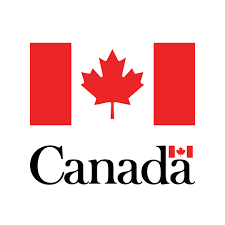
Grant and FundingOpen
IP for Business
Canadian Intellectual Property Office (CIPO)Intellectual property training, tools and expertise
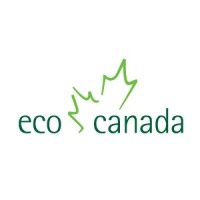
Wage Subsidies And InternsOpen
ECO Canada — Student Work Placement Program
ECO CanadaMoney to hire students for an environmental co-op
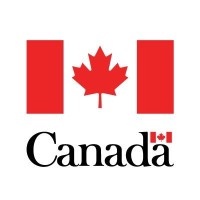
Grant and FundingClosed
Enhanced Road Safety Transfer Payment Program (ERSTPP)
Transport Canada (TC)Funds projects to enhance road safety and reduce traffic injuries
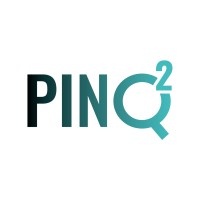
Researchers And FacilitiesExpert AdviceOpen
Digital and Quantum Innovation Platform — PINQ²
Plateforme d'Innovation Numérique et QuantiqueGet expert advice and the use of a high-tech environment
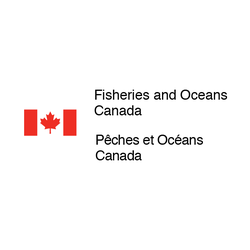
Grant and FundingClosed
Canada Nature Fund for Aquatic Species at Risk (CNFASAR)
Fisheries and Oceans Canada (DFO)Supports recovery and protection of aquatic species at risk
Sign up to our platform to access the Discovery Grants (individual) program information sheet for free
Get access to 4,000+ programs, practical guides, personalized alerts, and an AI assistant to support your grant applications.